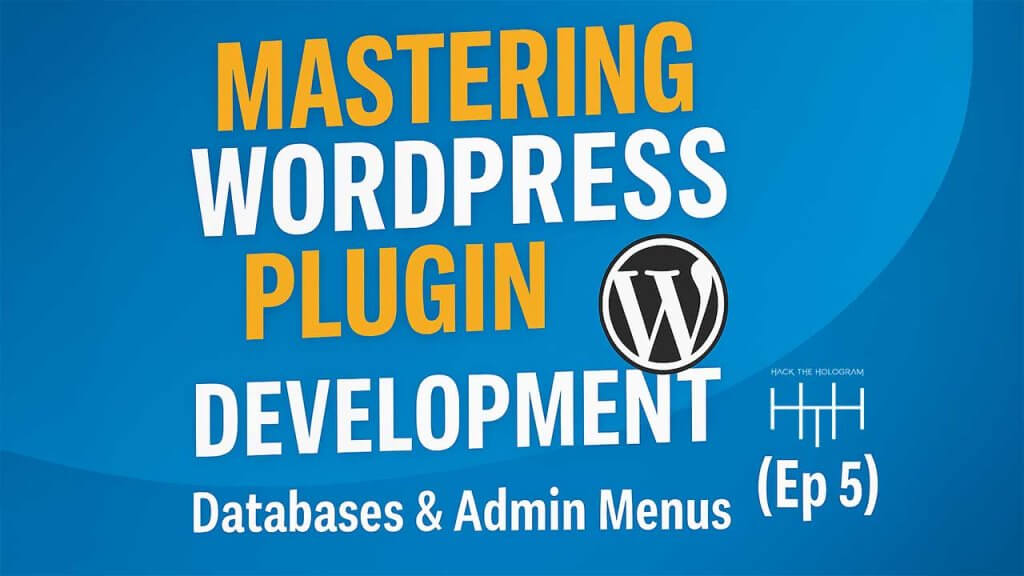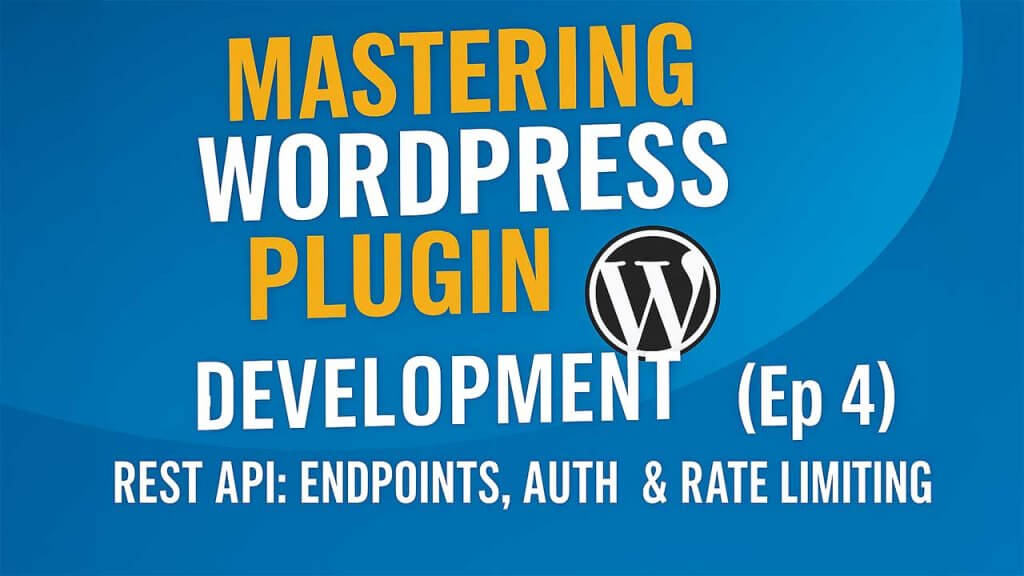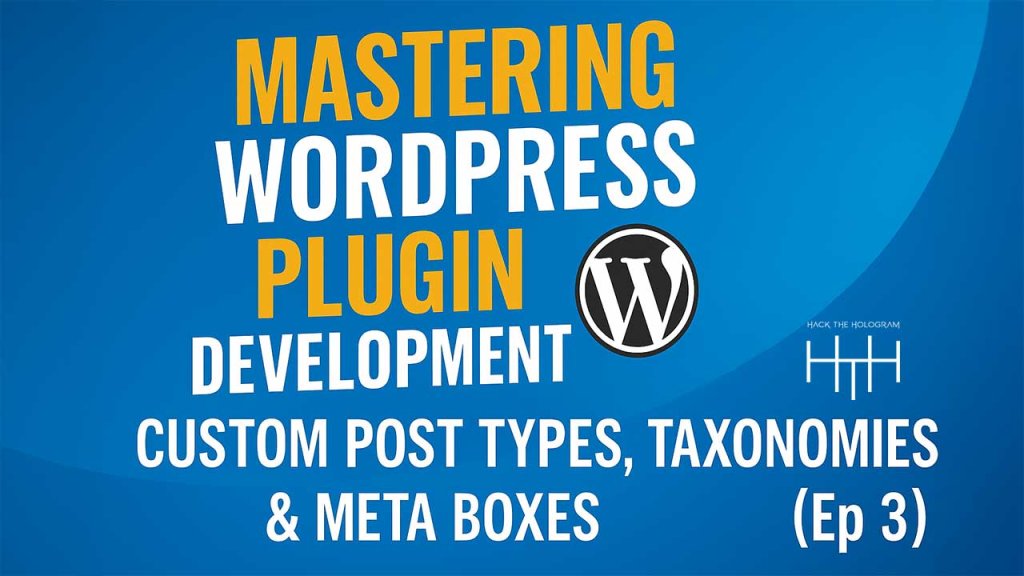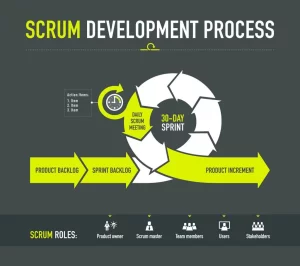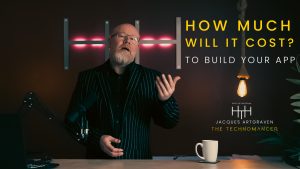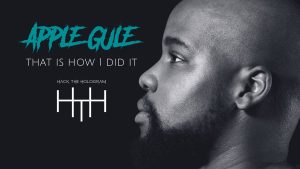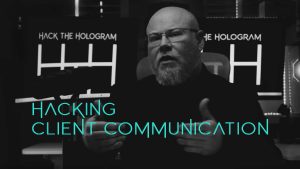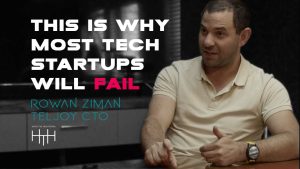Timestamps
30:07 – Final Words & How to Work with Jacques
00:00 – Introduction: The Truth About the Entrepreneurial Rollercoaster
01:10 – The Personal Reboot: Why It’s Needed
01:26 – Experience, Credentials & Recent Setbacks
02:22 – The Collapse of Contracts: Real-world Case
03:26 – Taking Back Control: Focus on What You Can
04:08 – Healing Through Knowledge, Coaching, and Growth
05:19 – Modeling Beliefs, Not Just Behavior
06:17 – Making Possibility Feel Real: The Brain’s Role
08:05 – The Shadow of Self-Sabotage
09:05 – Wealth Guilt, “Just Getting By,” and Worthiness
10:23 – Poverty, Crime, and the Morality of Prosperity
11:10 – Your Base Level of Self-Worth
12:13 – From Victimhood to Power: Why Action Is Key
13:50 – Positive Thinking’s True Purpose
14:33 – Letting Go of Trauma Through Identity Work
15:13 – Loss as a Status Crisis
16:43 – Marketing, Status, and Human Drives
17:58 – The Physical Impact of Psychological Stress
18:44 – Why the Nervous System Loops Trauma
19:24 – Polyvagal Stress and Illness
20:51 – Resetting Your Emotional State Through Focus
22:07 – Creativity, Possibility & Stuck States
22:46 – Why Identity Change Gets Harder After 35
23:10 – Active Imagination: Jungian Healing in Practice
25:06 – Interpreting Dreams and Symbols
27:40 – Narrative Rewriting and Memory Editing
29:31 – The Real Work: Identity Alchemy

So today I want to talk about the great reboot. The fact of the matter is, business life doesn’t always go the way that you have planned. And the fact is, some days you’re on top of the world, some days you’re at the bottom and there’s a lot of podcasts and things that are out there that’s just telling you to toughen up.
And they’re not really actually giving you any kind of tools or solutions on how to become strong and how to overcome the various difficulties. So whether that is a divorce that has gone and happened and affected your life, whether it is a sudden change in location, loss of clients, loss of business, the internal resilience of the entrepreneur is fundamental.
It is key in order for your growth to be in fact, your quality of self as a person is really what’s going to carry your business across, especially when you’re in a situation where you have other people depending on you. Throwing in the towel is simply not an option. Whether that is family employees or just colleagues that require you to get to that next level.
So today’s episode I want to talk about not only the reboot, the comeback.
I think one of the things that I think is very important for me is because I’ve been through this several times, and I don’t think it’s the end of it. I’m still going to find challenges in other areas. But we’ve been there and I’m I’m a 45 year old man at the time of this recording. I’ve seen my fair share of things.
And, you know, there are many other professional businessmen in their 50s and 60s and 70s that have seen far more than I have and overcome far more. What qualifies me uniquely to experience or discuss this is, besides the experience, a strong background in neuro linguistic programing, hypnosis, an incredibly large amount of therapeutic modalities including attachment styles, existential kink, archetypal psychology and behavioral sciences, which excludes all of my technical knowledge and knowledge and UX and marketing sciences.
Now, the reason I think this is important is because I’ve recently had the loss of several clients at the same time, and this was quite a financial blow to me and to my company. Not a permanent 1 to 1 client was going on a pause that would take up to here. The other ones were stuck in a situation of, needing new license agreements before they could proceed, you know, any further with us.
Key Insights & Takeaways
- Your identity determines your destiny. Most failures in life are due to outdated narratives we unconsciously live by—not external circumstances.
- Trauma loops recreate themselves until resolved. The nervous system doesn’t seek punishment, it seeks resolution—hence repetitive life setbacks.
- Status loss is the root of most grief. We grieve jobs, relationships, and finances not just for their absence, but for the hit to our perceived status.
- Positive thinking isn’t the goal—action is. Thinking positive only matters if it leads to aligned, intentional action that rewires your outcomes.
- Memory is a narrative illusion. Our brains distort memory to match identity. Change your story and you begin to change your biology and behavior.
- Wealth guilt and low self-worth sabotage success. Many people unconsciously block abundance due to moral conditioning around “taking too much.”
- Active imagination is the key to unlocking the unconscious. By dialoguing with dream symbols and meditative imagery, we access the real roots of our patterns.
And that was, you know, contracts that were over the 250,000 rand mark a month. They were clients that were very, very, capable of what they were doing. But licensing government policies, all these things put a 6 to 8 month minimum pause on those projects in a situation where where we were really started, they were really teams members hired for this.
There was already expansion and projects set out where we said no to other clients, and we’re about to pull this off. Now, that doesn’t make these people bad. They do what they did best strategy before things happen in their life. It we can blame when we want to, and all we’re doing is we’re jeopardizing very important relationships with very good people.
So where we need to put our attention is firstly not on what you cannot control, but on what you can control. So inside of that situation, I may find myself in a place where now suddenly I have a very open calendar, right? It’s one of the few benefits that you have. If you still got a lot of youth on your side and a lot less responsibilities, if you have a lot less money, you tend to have a lot more time on your on your hand.
So I found myself in a situation where I suddenly have more time. Now I could sit there very much easily and feel sorry for myself, and I fortunately have a couple of psychological methodologies that I use in order to get myself back up to speed. Now, firstly, if you don’t have that, I recommend that you go see somebody, right?
I am way past the experience of my life of saying that anyone is too strong. You know, for therapy you can have the benefit of a therapist, a life coach, somebody that you can work with. In fact, I myself have turned to 1 or 2 or more in my period. In fact, I pride myself on building my my, my growth, on the knowledge of others.
I’ve spent at least on average, a minimum of 30 minutes to an hour every single day since my early 20s studying, learning, growing whether that’s in my skill, in my craft, or psychologically, emotionally, and spiritually in other areas of my life. I think as a Renaissance man in today’s world, you need to consistently keep yourself up to date with ideas, whether you’re even just listening to other information, playing podcasts, playing audio books.
I would recommend instead of just popping on podcasts and YouTube videos out there. And this, of course, is mine. With my unbiased, you know, preference there that you look at. What are your books or courses or programs where somebody has put in more effort not just to reach a market, but actually to deliver the value because they’ve been paid when somebody’s already been paid, when or when there’s actual money in the bank, there’s more of an incentive for them to give better value than just the potential of it in the marketing space.
So find good audio books, go through those and listen to them passively. So that’s one strategy that I utilize. The second one that I utilize is I try and identify people that have already achieved the success I have. And as an NLP practitioner, my question is how do I model their behaviors? But more specifically at first, how do I identify their belief patterns?
And I don’t always listen to what they’re saying. I listen to the frame from which they are saying it. You see a lot of courses and programs that are out there. You would imagine that the best content is the stuff that’s going to be taught inside of the workshop, but it isn’t always, and I’m not saying the content isn’t good.
The person intellectually sat down and put it there, but the problem with them intellectually sitting down and putting it there, especially if they’re not a lifelong teacher themselves, is that they’re fairly unconscious of their actual mechanisms that become their default behaviors. And life is formed by our habits more than our quick actions. It’s the things that we do consistently, not once author creates change.
So I’m looking for their habits. I’m looking for their habits. I’m looking for their underlining model of reality and of themselves, and of the business or the industry or the thing that they are relating to. And that’s the thing that I’m trying to emulate or condition inside of myself. Now, firstly, I’m not going to just be able to do that.
I can’t just take on someone’s idea of the world being a better place, or that opportunities are abundant or anything like that, and deny my current experience. That would create a contradiction or a division within myself, which will create a situation where I’m battling myself and I’m fighting myself in order to do it, a form of self-sabotage. So I want to be authentic with what I’m dealing with, and I want to also bring in this alternative pattern inside of it.
And this requires two things. One, more credibility of the possibility that what is chief for the other can be achieved by me. Now I have supporting other beliefs such as we live in a quantum field and everything is made from the same quantum mechanical stuff. So as such, because we’re all made from the same stuff, someone else can achieve something.
I can achieve it too. So that’s a default behavior pattern, or a belief of mine that allows me to adopt new beliefs more easily, even if I don’t have evidence of it in my life as yet. And once I’ve got to for it. Here’s the benefit of that. Once your brain gets 2 or 3 references, it gets credibility from a couple of different angles.
Oh, this is like that other person. This is like that one time with me. Oh, I remember doing something like this before. Then your brain starts to accept the possibility as a probability. And once it does that, the reticular formation of your brain becomes or goes online and starts to find more evidence of this thing, and that’s when your brain goes, oh, there.
And that’s when the connections start being made. That’s the same part of your brain that, you know, we buy a new car or you find a new designer. Suddenly you see it everywhere, right? You see the new the new design. Everyone’s wearing of that perfume. Everyone’s wearing it. But it’s just how the brain is wired. Now, at the same time, there’s still the resistance from the opposing thing that when you look at the opposing thing, that could be the shadow issue in your unconscious that’s indirectly driven you to that situation where you were losing those clients and you didn’t.
Because I did this a lot of my earlier parts of my career, I would, go in the freelance journey, I would do these things, and I’d land a really big client and I would go all in because I want to impress and I want to get to the next level. And then that contract would finish because we’ve delivered, or it would just come to the conclusion, and then I’m stuck and I’m stuck because I didn’t continue marketing.

I didn’t continue my business. And it wasn’t that I couldn’t I was so focused on the thing. But the reason I was targeted on the thing was because I was unconsciously sabotaging, because I was limiting the amount of wealth that I was allowing myself to have. There was a sense of my concept of enough. You know, a lot of us grew up with that, especially if you’re, you know, from South Africa or many other places around the world.
Really, South Africa isn’t the unique one here, but I think a lot of people that grew up, with this, you know, not taking too much, especially if you grew up in a space where there was a lot of poverty and, but being grateful for what you had. And that message, I think, was a little bit distorted.
But the idea there was not wanting too much. And what we end up doing is we end up having not actually not even too much or not even enough. We’re just getting by. And that getting by is a standard. And we we make ourselves proud of that. We say things to ourself like, in an unconscious way, like we’re not a good person, you’re a good Christian or Muslim or whatever your religious or spiritual affiliation is.
Or, you know, a good member of the you’re not taking too much and we use this as a moral standpoint that we unconsciously defend instead of just simply recognizing the truth that the better you, the more you have, the more you have, the more wealth you have, the more success you have, the better you can do for the people that you care about and for the people that don’t have it right.
So in any situation, wherever you go around the world where there is more wealth, there may be a couple of idiots there that, you know, stated that the power goes to their head, but overall the situation is better because they’re not necessarily like cut throwing at each other. But there’s a lot higher crime ratios in areas where there’s a larger amount of poverty.
Right. So, you know, the really rich, messed up ones can be easily seen. But that’s because they’ve got the voice, the microphone. We don’t put a spotlight as much on on the other areas. But the fact of the matter is with this greater poverty, there is greater crime in this way to problems with this greater wealth. There’s less crime and there’s less problems.
And that’s just the way it is around the board. And you can do more. You’re more power to create change than you would be if you were in a poverty situation. So you have a responsibility to get yourself out of poverty. And you have an A band. You have a fundamental requirement in order to succeed. So recognize on this journey the magnetic force that pulls you down to what is what I call your base level.
And your base level is the evidence of your current actual belief about yourself, your self-worth, and the world and your place inside of it. Right? Your belief about yourself and your light in your world determines your potential inside of it. If you do not do that, you’re not going to be in a place of taking action. Now, it may be very easy for us to kind of blame.
That’s the next element here. We may be very easily put in a position where, you know, she left and she took off the money. You know, the the situation happened in the employees, you know, did this or, you know, the client did this. And again, like what mentioned in the beginning is very easy to blame, but there’s no power inside of it because all that’s going to do is going to make you bitter and out of being bitter.
Are you going to be in a negative emotional state, and your capacity for action is presupposed by your state of being? I don’t mean your starting state. I mean the states that you’re able to generate to be starting from a pretty crappy place because, you know, she or he just left you or betrayed you. They were them.
Just you know, did whatever, whatever the excuses, right? And people, places, times, things and events where ever this occurred, where I even occurred. But the moment you’re doing that well, you can start there, you know, because that was the reality of what happened, maybe for yourself. But as long as you’re in that contemplation, you’re going to be generating an emotional state that’s going to make it harder for you to succeed, because you’re going to start creating assumptions like, the world’s unfair, people are unfair, you know, what’s the point of doing it anyway?
And that’s the most dangerous place as to what’s the point of doing it anyway? Because once you’re in that space, you stop performing and stop acting, and the moment you start taking action, because that’s the currency of life. But the currency of life is not your positive thinking, but the positive thinking is only to get you into a place where you are capable of taking action because you believe in the probability of success.
That’s the point of positive thinking and positive emotion. It’s not just sitting on your couch and thinking, the world is going to be great and everything’s going to be wonderful, and that’s going to be that’s going to create the change. No, the point of getting change is through getting action, and action is the reason you’re having these positive thoughts.
You’re wiring yourself to the probability of success so that you are more willing to take action. Because the reason you don’t take action is because you link pain to the fear, the possibility of the known, or you have pain linked up from the past of what you have now. And those are the things that control you. And unless you can discredit those pains, or at least you can make the potential pain in the future far worse then the potential pain that you are suffering now, you’re not going to be in a place to move, and you need to be in a place of action.
So the positive thinking drive here doesn’t mean you’re denying the stuff that happened in your life. It means that you set up a frame or an example, or an interpretation of what happened in your life in a way that still presupposes the possibility of success. And the greater that possibility of success is, the greater the likelihood of you taking action, even if you didn’t feel like it was the start.
Right? So again, the positive thinking is not. So you can sit on your couch and imagine your Bugatti and your new partner and everything like that. It’s all going to come up. It’s not right. That positive thinking trait needs to translate into action, and it’s going to translate into action the moment that in your nervous system, the possibility of this being achieved is far more real or far more compelling than the pain of what you’ve been through.
So if you’re still in there and you’re still stuck on the intensity of the pain of what was done for you, and you’re interpreting things from that place, you’re not going to move all the positive thinking. The world is not going to help you, because in your nervous system, the thing that is most real is not the possibility of what’s going to happen to you, but it’s the betrayal or the darkness of what has happened to you.
Right? The past experience is always going to be more intense than the imagined future, because it’s more real to your nervous system, because it’s more you’re more identified and associated with it. You have to disassociate. You have to let go. Easier said than done, right? But the way to let go is to simply figure out what is this old identity of mine that’s stuck in this past frame, right?
Because, you know, if we look at all the major losses in our world, whether that’s a divorce, whether it’s the death of a loved one, where it’s a moving to a new area or the loss of a job. Right. The primary, you know, losses. All we have in each and every one of these situations is a jeopardized ation of our status.
Right. If you were in a couple, in that couple, and suddenly your status changes, you know, in a different dynamic, this is different for a woman than it is for a man, right? It’s different in different areas that you may be. And even the difference between men and women in that scale is really based upon the attractiveness of the partner.
That’s it. That’s, that’s giving up their or of the one partner versus the other one. That also impacts differently that scale of status. And to give you an idea of how important the status game is for our survival of our nervous system, there’s an example of people that have been lifers in prisons. They’ve been in prison for such a long period of time that when they are given the opportunity to finally leave the prison, they actively sabotage this situation.
And the reason they do this is the old phrase, it’s better to be a king in hell than a servant in heaven. And that, you know, may sound crass for some, depending on your perspective, but what I’m simply getting at is inside of the prison system. Even though a horrible environment, they, having been there for that long, having gain knowledge and relationship and connections, have a status in that environment.
But when they leave that environment, they’re nothing more than a con. They can’t get a job or respect. Right? It’s a cost in status. So even a painful situation, someone will stay in because it offers them greater status. And status is literally the force behind our breeding. It’s the force behind our alignments with people and because that’s what all marketing is, marketing is just demonstrating a certain status that the client wants.
At the end of the day, it’s positioning yourself as a brand influencer and linking to that status that’s being sold. So people cross associate that with you. So when we have a lot of these losses, one of the big losses you feel may not even be the loss of the client, may not be the loss of the partner.
It’s the loss of the perceived status as an entrepreneur, as a lover, as a partner, as a father, as a mother, as whatever it may be. That’s the thing that you’re fighting right at one of the most biological labels. Now, that doesn’t mean that’s how you’re interpreting it psychologically, right? This is what’s happening in a biological label, not a psychological label.
But I want you to be aware of that, because the benefit there is, because you’re aware of it. The same way that aspirin can literally help for a heartache, because the heart is in muscle, and it does actually have a physiological response when we’re going through that pain. And, you know, the old ancient said, as above, so below is below, so above.
This is the real correspondence to it. In other words, if something isn’t working right in your psychology, you can take medicine to change it temporarily, right? So you can affect the below. Use the blow to affect above or you can affect the above to affect the below. Right? So changing your psychology, your way of looking at the thing or changing your physiology, that also means just going out and exercising.
Right. So go to the gym, take a walk, get into the sun, do something physically active if you’re struggling to manage that emotional state. But this is something that you need to do. And you must recognize there’s a gravity of it until you actually free yourself from it. And here’s the cutting point you will suffer that thing as long as it has the intensity of the meaning in your life.
“Your base level is not your potential—it’s just the evidence of the story you keep telling yourself.”
“The nervous system recreates trauma not to punish you, but to resolve the unfinished narrative of your past.”
If that is the most meaningful event in your life, whatever it was, you will keep going back to there. Because here’s how the nervous system works. If you have trauma of any way, shape, or form, your nervous system will continue to try and recreate the circumstances that produce that traumatic event, not because it’s a sucker for punishment, even though it seems like that at a point, but specifically so it can recreate the event in order to actually finish and resolve it.
The same thing happens in our brains when we dream. A lot of people will go, you know, dream. You know, those that have good recollection of their dreams will know this. Sometimes you’ll get a nightmare in the wake up from the nightmare and they’ll feel, you know, stressed if you just went back into the dream, if you just close your eyes, you went sleeping.
You kept going in. Instead of trying to escape it. Your mind, your psyche will actually eventually resolve the entire thing, because it’s nature is to process the data, not to get stuck on the data. The problem is we get into reaction, in which case we interrupt the pattern and we create a loop inside of ourselves, right? This is the same as how stress occurs in an event and the stress is supposed to start.
It was the trigger, the adrenaline to get you to fight or flight, right? But instead what we do is we get to the third one. And this is where the big damages, which is the freeze response. Right? This is the when we get dorsal, shut down inside of our nervous system, we have the poly vagal system, which actually gets impacted by the stress, either psychological or real.
And this is where we get a lot of different diseases on that. Anytime you go to the doctor for a thing and then it’s suddenly gone and then it shows up somewhere else and then something else, and then you’re like, I’ve got to go to the doctor and then it’s it’s gone again. That’s not in all cases. I’m not a medical doctor, but in most cases that is your poly vagal system that’s been under stress.
And it’s moving because the system controls the bulk of your organs. It has connections in for the bulk of your entire system. Now, to get that solved, you must firstly recognize that you are in stress. You must recognize that you’re in survival until you do, you’re going to be unconsciously feeding on this because when the stress happens, you’re rushing to the computer, you’re rushing to the desk, you’re trying to do these things, and you’re very narrow in your focus.
Now, as much as that focused action can be useful. But the problem is in those situations, because you’re not doing it with full awareness and full presence, you may end up doing it in a very unhealthy or unproductive way, versus because you’re thinking and operating from a survival state and the state that you are in determines the actions and the results you’re going to take.
If in stage you can move out of that survival response, go do a little bit of meditation in the morning, go listen to some music or do go to the gym. Get yourself into a different space where you’re not focused in on what you don’t want and what you don’t like and what’s not going right. But you’re focused in on what would it feel like if change was possible?
What would it be like if you were able to create change in your life? Now? What if you succeeded? What if you found those new clients? What if that new opportunity, what if this break was actually for the better for you? You know, what was the things you didn’t see? If you start asking different questions, you start directing your focus in a different way.
And where you focus goes, your energy goes well, your energy goes. It’s just another fancy, esoteric way of saying that’s what emotion you start to feel, right? Because if you’re focused on what is crap, you’re going to feel crap. If you’re gonna focus on what’s good, you’re going to feel good. It’s very, very cut and dry. It’s not that it’s satirically complicated.
And then out of the emotional determine your action. So if you’re not getting into a creative state in a resourceful state and you’re feeling smart and you’re contemplating all these great things, you’ve achieved in things that you’ve done or could do, that puts you in a power state with suddenly ideas flow and spark. Because otherwise. And you’ve noticed this when you’re in a bad state and you’re bad, depressed and life feels unfair to you, nothing comes right.
When you feel alone and rejected and isolated. Nothing comes right because you can’t see it. The opportunities are there, the possibilities are there. How many people live in the same street that you do? How many people live in the same town do you do? Do you think there’s a possibility that some of them will be willing to do business with you, or someone will be able to go out with you?
There is at least a statistical probability that’s fairly good if all you did was reach those people. But you don’t. And the reason you don’t is because you got stuck, right? Whatever the thing is. And here’s the catch by the time you’re about 35, your personality is fairly formed and very well defined. So that means it’s no longer as simple as just changing your mind.
You have both neural networks around this identity. So the shift may be more difficult for you. So within those things I want you to think about all of these different stages that I mentioned. I also want to recommend that you work with somebody if you are looking for a mentor and coach, alongside my technomancer and technical programs, I also look at the inner in the full dynamic of an individual because we are holistic beings, right?
It’s our inner game that really determines our possibilities in our outer world. So I think this is something that’s crucial and core. But here’s my key a little trick, my one little simple game, you know, that you can do and you can apply well, you don’t need anybody miss two single tools inside of this. Now, I’m not getting esoteric here, even though it may sound like it, but.
Doctor Carl Gustav Young would reduce us to a concept known as active imagination. And we’ve known about the series and the ideas of the unconscious. You know, since much earlier in therapeutic processes. The notion here. And I’m just going to make this in simple language. The notion here is that you’re pretty much aware of 10% of what’s going on in your drives based upon your survival needs at that moment.
So in other words, 90% of the data actually much more. But let’s just say that number is unconscious. You’re not aware of it, but it’s driving the system, right? You’ve forgotten about that stress in that fight a long time ago, but yet your Garmin watch or your Apple Watch is saying that you’ve had a high stress day, even though you think you’ve had a basic day.
And the reason for that is because a part of your nervous system is still in the past, it’s still in. And with that event and that pattern needs to be interrupted. But the thing is, you don’t even know what that pattern is. So income’s your unconscious. Now, here’s the thing to know when you’re speaking and working with this part of yourself, because if you’re listening is you might be a very logical person.
“You can’t outperform your identity. Until you rewrite your inner narrative, the outer world won’t change.”
“Positive thinking isn’t magic—it’s a primer. Action is the real currency of transformation.”
“Most people aren’t afraid of failure—they’re addicted to the status they lost.”
“The unconscious speaks in metaphor. If you want to heal, you must learn its language.”
You might, especially in the show like this. We’re focused on the technical details, right. So you may not be fully aware of what it’s saying. And then you go in, you have dreams and your dreams are strange and abstract and they don’t seem to make sense. Or, you know, you’re going to get what you know, Doctor Young said.
There is you could do active imagination. In other words, you close your eyes, you begin imagining something. You create a garden or create a space and you just keep going. You just keep filling it out with whatever comes. And what happens is, but you ask a question, you actively do this, you engage, you say to yourself, I want to figure out what’s going on inside of me.
I want to figure out what’s really blocking me, what’s really in my way. And then you simply go and look at the content. You go and use your imagination. You look at your dreams, and here’s how you interpret it. Because this is something that everyone tends to get wrong. Your unconscious is your irrational mind. Your conscious is your rational mind.
Okay, so the problem is you’re trying to take your irrational mind that is non-linear and you’re trying to interpret it in linear, sequential ways. And you don’t supposed to do that. You’ll never understand it that way. You try to look it for logic and for reason. It’s not there. Think of it in state is a really creative artsy guy, and all the artsy guy knows is he’s going to create a message to you like, your childhood was crap and your dad was abusive or, you know, they were unloving or whatever it may be, or you had this event in your childhood where you felt unloved and that’s been haunting you.
They’re not going to say that they can’t. They don’t have the functions for it. They’re a little bit extreme autistic, like they’re autistic enough to make me look neurotypical. And in that sense, that person is essentially saying to you, okay, how do I describe this in their very extreme artistic way and the way they’re going to be doing that is, showing you a dream of a circus or while you’re in that garden, suddenly there’s a a monkey with a hat on, you know, like a circus hat.
And what he’s trying to say is that you feel like a dancing monkey, like you’re not you’re not feeling like you’re taken seriously. So that’s what you got to do. You’re going to start interpreting the symbols of this experience purely objective, and you want to look at it over time. The dreams and all these things, they’re not something that happens consciously to you.
They happen unconscious. Is the unconscious that speaking to you? Right. So in the unconscious is not in time. But so it’s not saying, okay, there’s the message I’m done. Now. The next one, it’ll repeat the pattern over different things. Now the next dream you’re having, you’re out in the car and no one’s taking you seriously. It’s the exact same thing from a different perspective.
“We don’t see the world as it is. We see it as we were taught to survive it.”
So what you want to do is you want to take stock over a week or two weeks. And again, you can take this in two approaches. One, if you’re able to dream, look at the dreams and simply purely look at them symbolically and then put all those symbols together and say, what do they all mean together? What is the context of describing?
What are these things keep coming up in these different forms, right. It’ll happen over multiple dreams. It won’t just be, it’s just it’s trying to reach you in different perspectives. The other one is the active imagination. Go into a meditation and then start just hallucinating or imagining things, and you create almost like it’s almost like you’re giving this part of yourself the building blocks and you’re asking it the question, and then just notice the building blocks and then see how that relates to the question you’re asking, and then put that together a period of time.
Now this is a well, it’s again like if you can find a union therapist to work with, that’s always going to be number one. But you can also look at books like Robert Johnson’s Inner Work. If you want a quick guide on just how to do this and get started. Once you’ve done this, what you’re going to identify is you’re going to find what is your actual perception of yourself in your world, what’s actually going on underneath the surface that you’ve been repressing because you’ve been shaming or disassociating from?
Once you’ve got that, your next piece of work is to rewrite your story, right? Your life is the result of your narrative, and your narrative has to be inside of your control. Unless you’re going to sit back and actually audit that narrative. And then once you’ve ordered the narrative, find flaws in that narrative so you can discredit and break it apart.
But remember we said pain and pleasure. This driving forces in the nervous system. Now you can start redefining experiences. And here’s why. Because memory isn’t accurate. But we know now from enough studies that memory is rarely accurate. In fact, in most cases they’re just interpretations of things. We will literally delete components, amplify components like we’re a video editor, and manipulate and distort memory in order to be consistent with the identity we have given ourselves.
Now, I’m not going to go into the controversy around that and how it affects in various, you know, areas of our life. But I want you to just understand that basic component. If you start discrediting that version of self and you start redefining the self, and the only way you’re going to do that is through narrative, you got to relook at your memories, your journeys, your processes, the thing that happened with mom and dad, the thing that happened, you know, in your child, in your teen years, in your formative years, and you’re looking for the impressions, the meanings, the anchors, because the one you got recently is feels like the big one.
But it’s not. It’s the cherry on the cake of an entire mountain, and it’s all you take the time to go into that. You’re going to keep finding yourself in the same place. I hope these ideas have been useful for you again, if you’re looking for someone to work with on these in a deeper level, feel free to hit me up or my services and mentorship is the area of my holistic approach to brand management.
I also do, along with your brand audit and the establishment of your product and services. I also look at these entire spectrums for you if you’re interested as one of my offerings. Or we can just build your company and make it epic until our next episode of Shock Our Grave and I hope these ideas have been useful for you, and I’ll see you in the next session.



